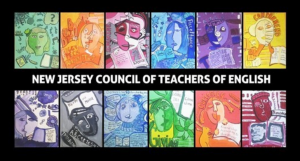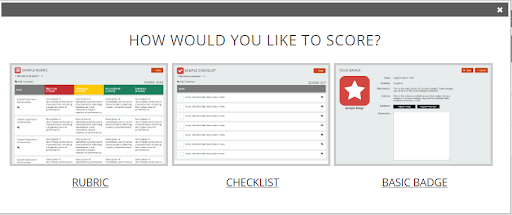First, last-call for applications for NJCTE’s Teachers for the Dream grant! This is an excellent opportunity for English teachers of color, and the application deadline is October 31! Apply today and/or share widely!
Second, the NJDOE has issued a call for input from teachers on standards and assessments. Applications for the various working groups are due November 6. See below for details:
The New Jersey Department of Education (the Department) is committed to engaging stakeholders in efforts to build a coherent system of high-quality academic standards and aligned assessments. To build a stronger and fairer New Jersey education system, the Department believes that a collaborative and systematic approach to curriculum development, data literacy and professional learning is essential to improving teaching and learning and to provide all students with equitable access to post-secondary success.
Therefore, the Department is seeking educators’ input regarding three important initiatives for the 2018-19 school year: 1) the creation of instructional units in Mathematics and English Language Arts (ELA), 2) the review and revision of the 2014 New Jersey Student Learning Standards, and 3) the second phase of outreach regarding the next generation of state assessments.
The Department is seeking educators with diverse educational experience to serve on these working groups, particularly, those with experience in:
• School context (e.g., K-12, higher education, urban/suburban/rural, north/central/south)
• Content expertise
• Years of teaching experience
• Role (e.g., teachers, teacher leaders, supervisors, principals, curriculum directors, data analysts, testing coordinators)
ELA and Mathematics Instructional Units and Standards Review Initiatives
During the 2018-19 school year, individuals with content expertise in English Language Arts and Mathematics will be invited to work with Department experts to participate in professional learning and then to develop K-12 instructional units based on the 2016 New Jersey Student Learning Standards (NJSLS). This work will be done jointly with the Partnership for Collaborative Professional Learning, which will provide training on the Connected Action Roadmap process.
Educators with content expertise in K-12 Computer Science, Comprehensive Health and Physical Education, Science, Social Studies, STEM, Technology, Visual and Performing Arts, World Languages and 21st Century Life and Career Skills will be asked to engage in a review of the 2014 NJSLS and to make recommendations. The primary goal of the standards review is to ensure that the NJSLS reflect current research on what students need to know and be able to do for postsecondary success.
It is anticipated that individuals with teaching experience in English Language Arts and Mathematics will engage in approximately 10 face-to-face sessions, with possible additional time as may be needed for virtual sessions or individual work.
Individuals interested in being considered for the English Language Arts and Mathematics instructional units initiative should request their principal or superintendent complete this Statement of Assurance, answer these survey questions and send a resume to standards@doe.nj.gov by November 6, 2018.
Individuals interested in being considered to take part in the review of the 2014 NJSLS should request their principal or superintendent complete this Statement of Assurance, answer these survey questions, and send a resume to standards@doe.nj.gov by November 6, 2018. All applicants will be notified by email of their selection status.
Assessment Practitioner Working Groups: Part of Phase II of Assessment Outreach
The goal of the assessment practitioner working groups is to build upon the Department’s draft framework for the next generation of statewide assessments that was established with the insights gained from conversations in Phase I, to support the development and/or procurement of the next generation assessment for the 2020-21 school year.
These practitioner working groups will focus on assessments in English Language Arts and Mathematics for grades 3-8 and high school, building on the priorities shared by students, parents, educators and content experts from around the state, which were identified in the Summary of Findings Report. For the fall and winter of 2018, participants will join working groups involved in the evaluation of assessment characteristics such as data and reporting, assessment technology, assessment types and formats. This work will occur alongside the policy analysis being done in order to further review New Jersey’s high school graduation requirements and related high school policies.
Those who are interested in participating are encouraged to complete the Practitioner Working Group Application by November 6, 2018. The application will be used to collect background information on each applicant for the purposes of placing participants into groups based on their unique areas of expertise. It is anticipated that individuals will engage in at least two face-to-face half-day sessions, with the potential for follow-up in virtual sessions. All applicants will be notified by email of their selection status. If selected, they will be provided their working group information and additional details regarding meeting times.
These practitioner working groups are just part of the NJDOE’s second phase of outreach occurring throughout the year. Information regarding graduation policy outreach is coming later this fall and the Department will provide periodic public updates on working group recommendations. An initial update is anticipated for early 2019, at the conclusion of the assessment working group meetings.
Contact Information
We hope you will consider participating or alert a colleague to this opportunity. Should you have questions regarding ELA and Mathematics instructional units or the Standards Review initiative, please contact standards@doe.nj.gov. For questions on Assessment Outreach, email assessment.outreach@doe.nj.gov.







 New Jersey Council of Teachers of English, the New Jersey state affiliate of NCTE, the National Council of Teachers of English
New Jersey Council of Teachers of English, the New Jersey state affiliate of NCTE, the National Council of Teachers of English




